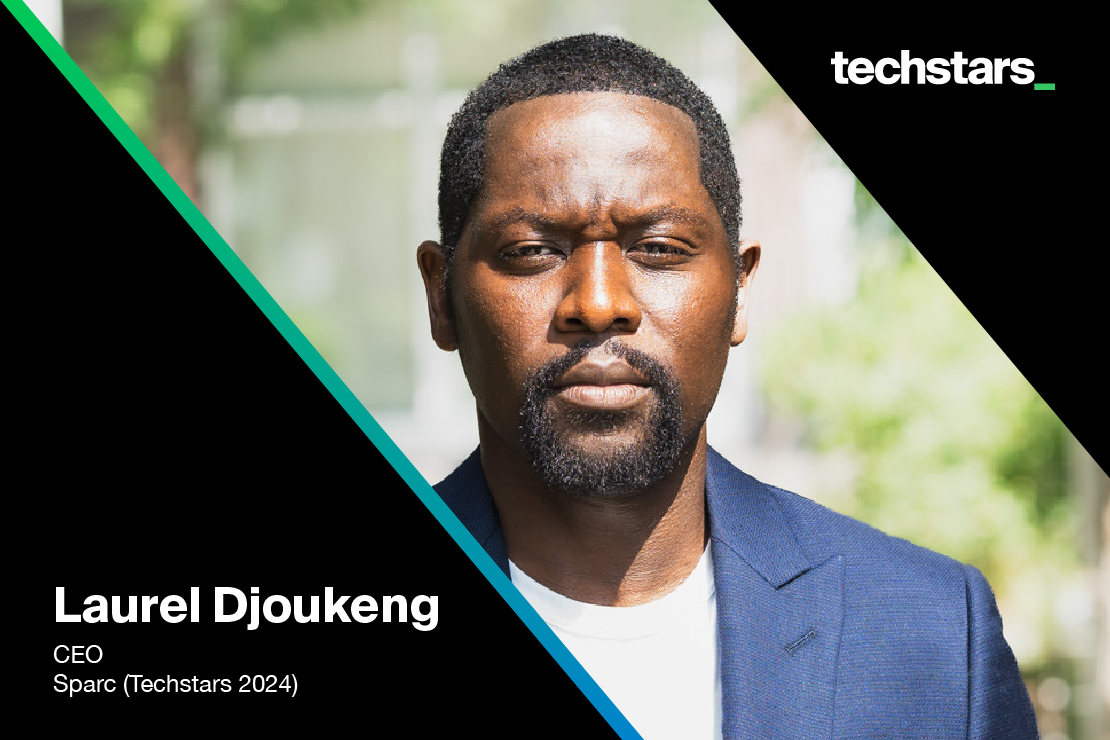Sparc CEO Laurel Djoukeng Is Revolutionizing College Recruiting with AI
Oct 16, 2025

Laurel Djoukeng is the Founder & CEO of Sparc (Techstars 2024), an AI-powered talent marketplace that directly connects employers with college student clubs and professional organizations. Students can apply for jobs, connect with other professionals, and engage directly with hiring managers through employer-hosted recruiting events and firm-sponsored consulting projects facilitated through their college student clubs.
A Techstars NYC alum, Laurel has scaled Sparc to over 5,000+ users and Fortune 500 clients, including Google, Meta, and BCG.
Before launching Sparc, Laurel spent over a decade in private equity and investment banking at PGIM and The Carlton Group, raising more than $300 million in transactions and managing $1.5 billion in assets. He is also the Founder of the Catalyst Network Foundation, a 501(c)(3) social enterprise that has delivered college and career readiness programs to thousands of underrepresented students, partnering with over 20 Fortune 100 companies, 25+ schools, and 25+ community organizations.
Laurel holds an MBA from Duke University’s Fuqua School of Business and a B.S. in Accounting from Hampton University.
What does your company do, and why is it important?
Sparc is an AI-powered talent marketplace that connects employers directly with over 1,200 college student clubs and professional organizations, making recruiting smarter, faster, and more authentic.
Traditional recruiting platforms overlook how early-career talent builds relationships through trusted communities. Sparc bridges that gap, helping companies like Google, Meta, and The Carlyle Group reach diverse, high-potential candidates while empowering students to access jobs, events, and paid consulting opportunities through their networks.
By modernizing how organizations engage talent, Sparc is making early-career recruiting more inclusive, efficient, and community-driven.
What advice would you give aspiring entrepreneurs who are just starting their journey?
Stay lean, be resourceful, and make every dollar work like ten. In the early stages, what matters most is how effectively you leverage the resources already available to you. Tap into accelerators, grant programs, mentors, and your network. Build, test, and iterate quickly with what you have. The more capital-efficient you are early on, the stronger your foundation becomes when real scale begins.
What has been your proudest moment or biggest triumph in your entrepreneurial journey?
One of my proudest moments was witnessing Sparc grow from an idea I conceived during my MBA at Duke into a platform used by over 10,000 students and professionals, as well as more than 150 employers. Over 50 people on the platform have earned more than $1,000 through academic tutoring and career coaching, and many of them have gone on to secure paid job opportunities through Sparc. Knowing that we’re helping people build skills, earn income, and access meaningful opportunities is incredibly fulfilling, it’s proof that staying lean, persistent, and focused on real impact can turn vision into traction.
Are there any lessons you've learned along the way that you wish someone had shared with you when you started?
I’ve learned that momentum matters more than perfection. Early on, I spent too much time trying to make everything flawless instead of getting feedback and iterating fast. Building Sparc taught me that sales should be your obsession from day one; every founder should think deeply about how to generate revenue early and often. Progress compounds when you stay lean, focused on customers, and willing to learn quickly. The market will teach you far more than any plan on paper ever could.
Can you share any resources or organizations that have been particularly helpful to you as an entrepreneur?
Several organizations have been instrumental in Sparc’s journey. Black Connect helped us secure a top law firm that has provided over $70,000 worth of pro bono legal work, which has been invaluable for our growth. The Duke University School of Engineering has consistently supported us with talented interns, and both Georgetown’s McDonough School of Business and Tufts University have supplied exceptional interns over the past three years. Each of these partnerships has helped us stay lean while building a high-performing team and a strong foundation.
How do you celebrate your achievements and milestones within your business?
I don’t really celebrate in the traditional sense; I try to take everything one day at a time. Building a company is a long journey, so I focus on consistent progress rather than big celebrations. Every small win serves as motivation to keep going and continue improving.
Why did you want to do an accelerator, and why did you choose Techstars?
I joined Techstars because of its proven track record of helping founders succeed and the opportunity to build alongside other ambitious entrepreneurs. The access to mentorship, the depth of founder-to-founder insight, and the global network of support that Techstars provides are unmatched. It’s a community that pushes you to think bigger, execute faster, and stay focused on building something that lasts.
What was your biggest takeaway from your time spent in program?
My biggest takeaway from Techstars is the relationships you build with fellow entrepreneurs, especially within your cohort. The program doesn’t end when Demo Day does; those connections continue to matter. I even met up with one of my cohort members in Mexico City while on vacation, and I still keep in close contact with several others, as well as my Managing Director, Keith Camhi. The community and long-term relationships are truly what make Techstars unique.
